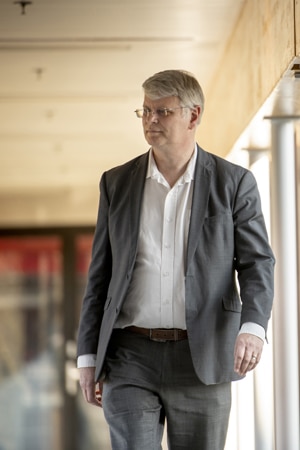Message from the Editors
I don’t believe in industrial revolutions. To me, there never was a single point in time suddenly something we refer to as “industry” came into view when before there was nothing. According to Wikipedia and contrary to popular opinion, my fellow Scotsman James Watt did not invent the steam engine. Rather he made improvements to the Newcomen engine, which was fundamental to the changes brought by the industrial revolution. But – when exactly did the industrial revolution start, and who started it?
Supposedly, the second industrial revolution was based around the switch from steam power to electric, driving the steel and automotive industries with standardised manufacturing and production lines. Vehicle assembly at Ford was a typical exemplar, but just as Watt didn’t start the first industrial revolution, Henry Ford didn’t start the second. William Shockley didn’t start the third industrial revolution by inventing the transistor and Alan Turing didn’t start the fourth through his advances in computer science and foreseeing artificial intelligence.
When does one era end and another begin? Things are not so obvious or well-defined. One can only look back in time and see when trends occurred. With the benefit of hindsight we can say that a transition took place. To me that is an evolutionary process and not a revolutionary one.
Will there ever be a 5th industrial revolution? If so, what will drive it and when will it happen? I wonder whether it will ever be because if we take Industry 4.0 to its logical conclusion, maybe we will see the demise of industry; that manufacturing will be more an organic or fully integrated process that is indistinguishable from other aspects of everyday life. The only thing for sure is that from a technologists perspective, we live in exciting times and the best is yet to come.
InnovatieNU is the magazine of the Fraunhofer Project Center and its Advanced Manufacturing Center. We bring you new insights and perspectives based on activities feeding through our doors on topics relating to advanced manufacturing. We hope that they intrigue you enough to want to travel the next steps of industry 4.0 along with us.
Sadly, one person not joining this journey with us will be my predecessor, Prof. Fred van Houten, who passed away recently to join the other greats in manufacturing.
Rest in peace Fred.

Chair Professor of Industrial Engineering (UT) & Scientific Director
Fraunhofer Project Center at the University of Twente


In our everyday lives we are surrounded by technology. The presence of smart devices and digital transformation is pushing to make it simpler and easier. However many industries are still lacking the digital trend, especially manufacturing industries with their obsolete fix-it-when-broken policy. The biggest risk of under-rating innovative technologies is the potential to continuously lag behind that may eventually lead to replacement by other businesses.
Entrepreneuring technologies will benefit manufacturing industry from shop floor to top floor to allow them make more accurate decisions. Empowered by leading edge engineering, the manufacturing sector can be the biggest beneficiary of the digital transformation. By accepting these changes and evolving alongside such innovations, enhanced production can be realized. With the primary purpose to reduce dependence on human expertise and simultaneously enhance the quality of the human interaction. It is a misunderstanding that technological change will initiate job instability. On the contrary, the harmony between humans and technology can be elevated. Instead of being replaced, it should
be seen as an association between humans and digital transformation that will help the organization to stay on high productivity.
Through the creation of a complete understanding of the values of digital transformation, business can challenge employees with a positive technological optic and leverage the information to their benefits. So discover how your organization can foster an environment in which growth is enabled and a competitive edge is maintained through the implementation of digital transformation in this first issue of InnovatieNU.

Research Engineer
Fraunhofer Project Center at the University of Twente
